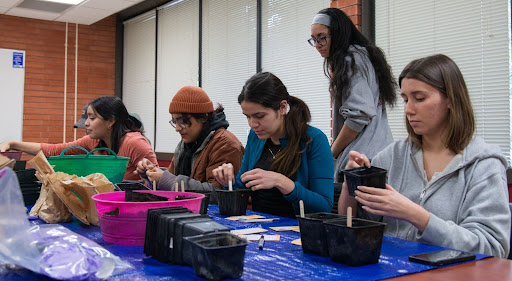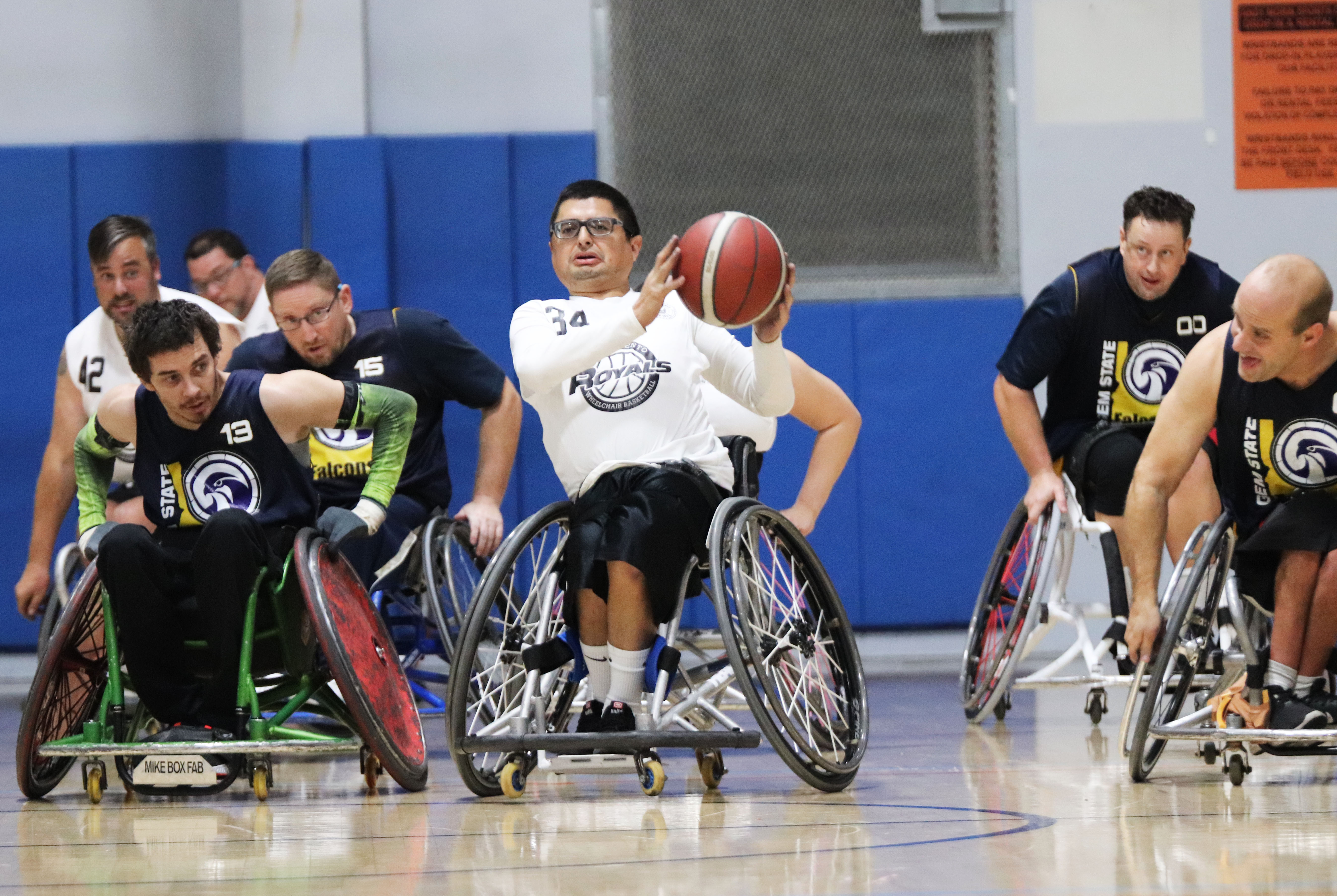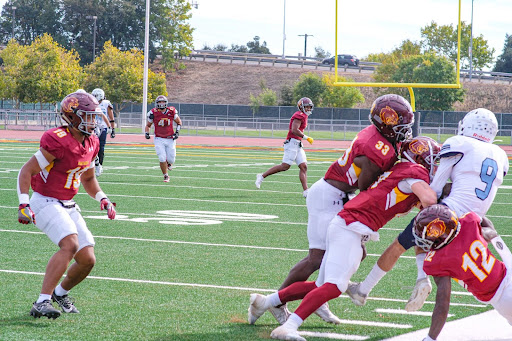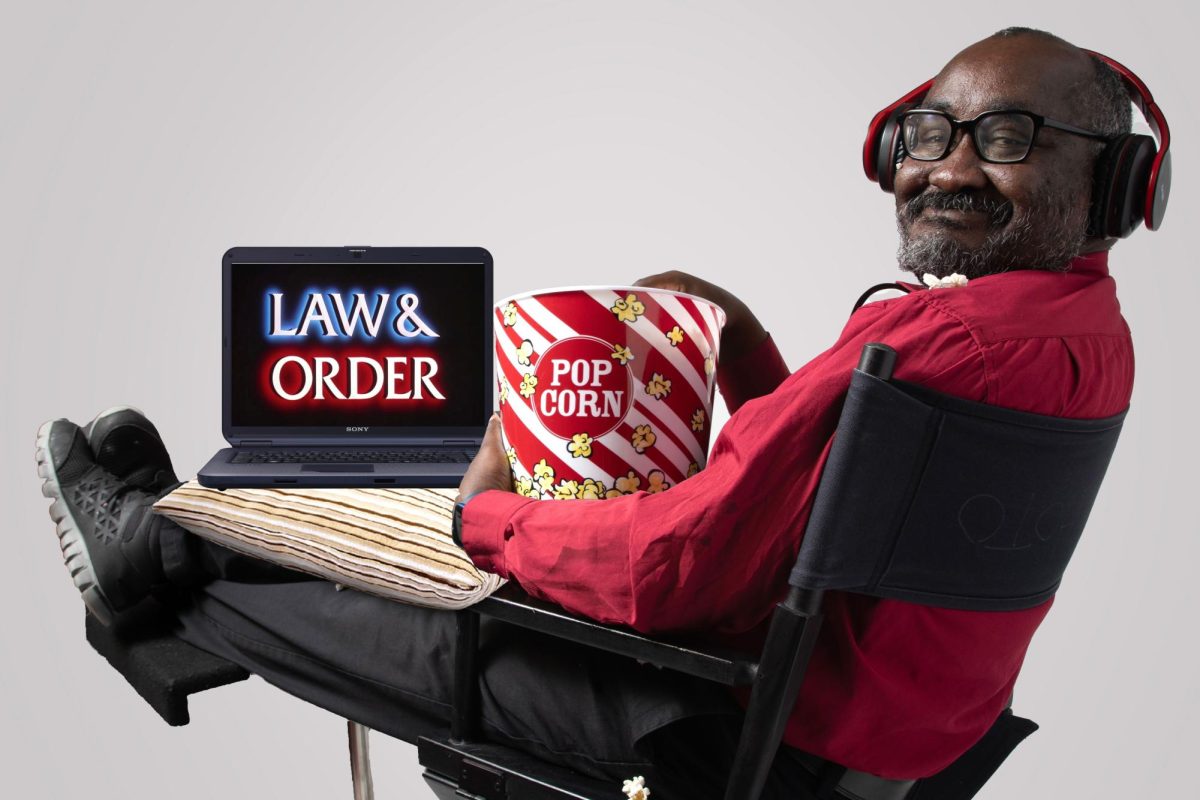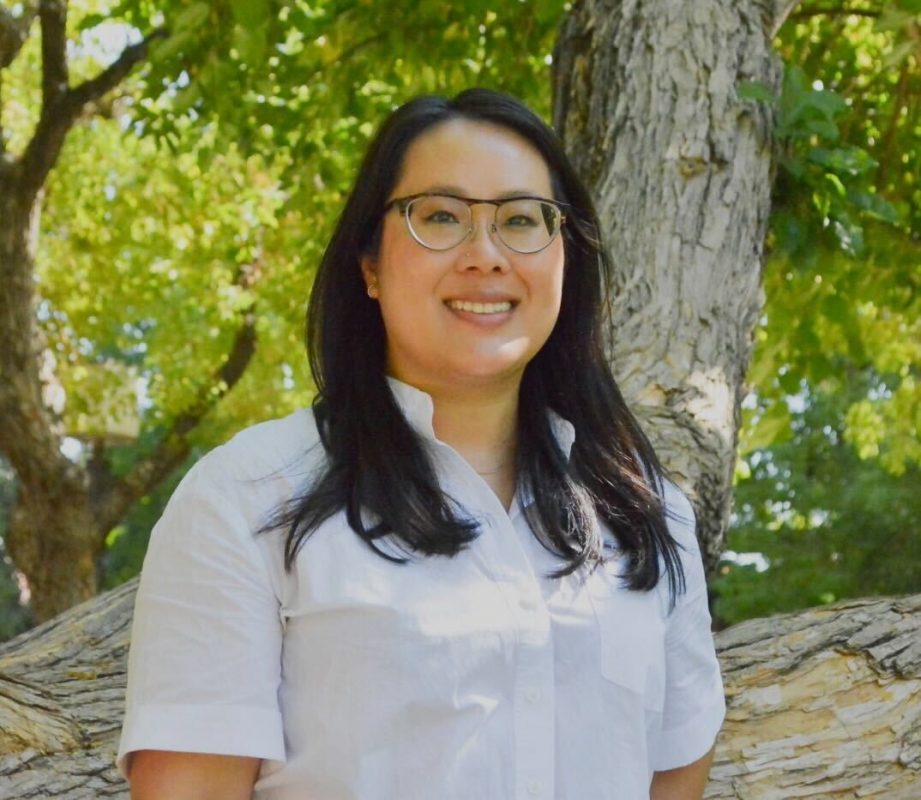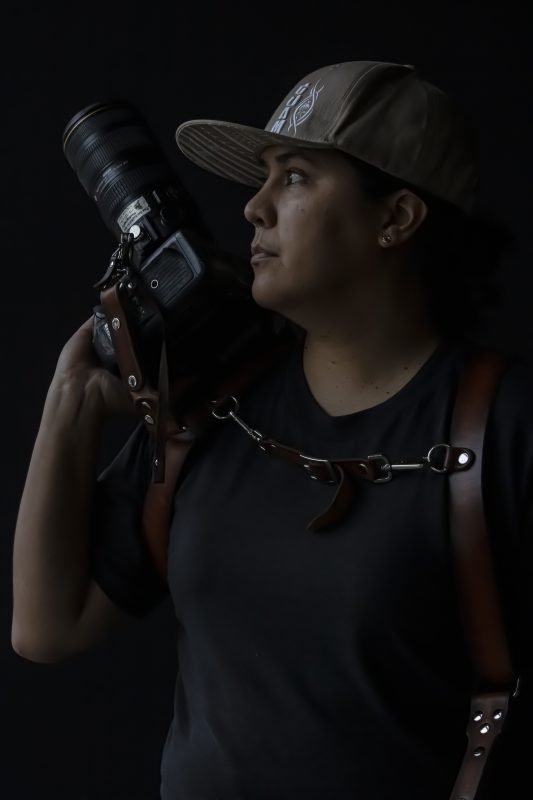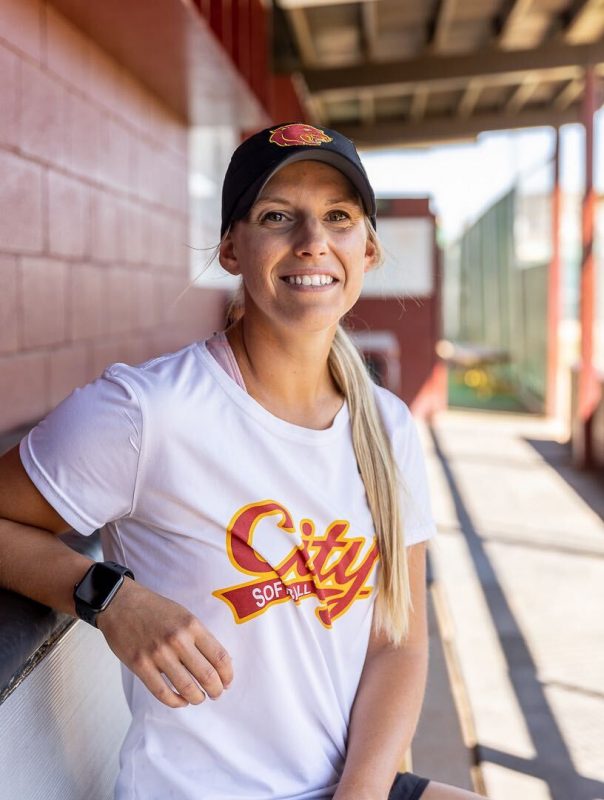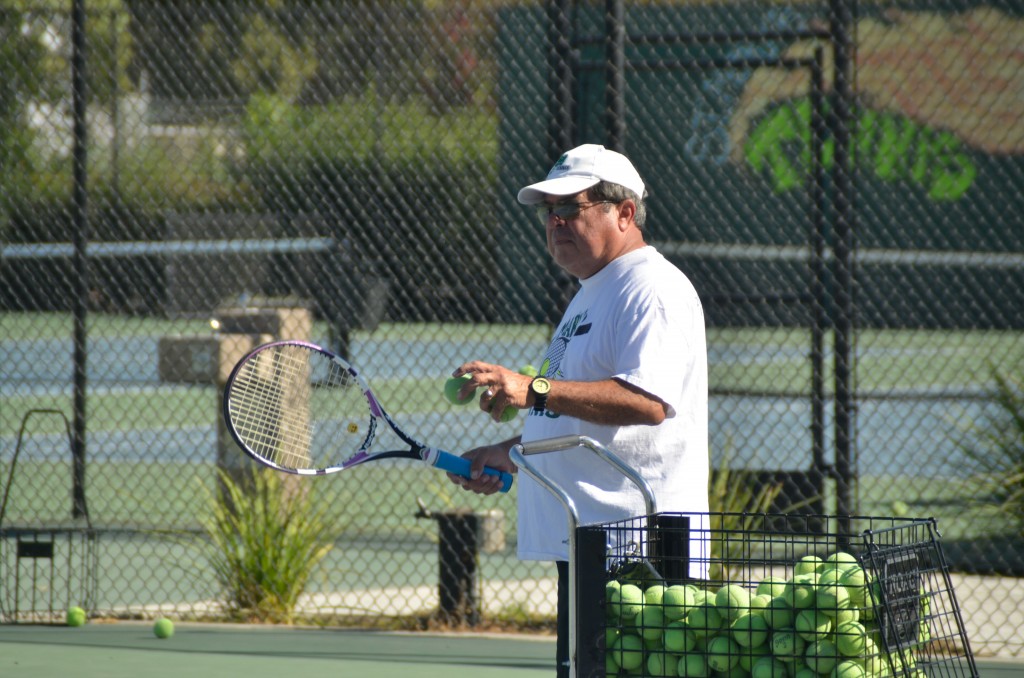
It is a warm fall day in Stockton, California, on the back side of St. Mary’s High School on the tennis courts. The sounds of perhaps a dozen high school girls chatting while getting ready for tennis practice mix with a wide variety of music playing on the loudspeakers for all to hear.
The girls’ tennis team is lead by head coach Robert “Chino” Chiene alongside assistant coaches Rich Ibarra and Mike Chinchiolo. As practice starts, Ibarra, who is probably better known in the area as a television and radio reporter, talks to the girls and gives them some advice for the day’s practice.
Ibarra, who graduated from City College in 1973, took general humanities at City College, then transferred to Sac State where he majored in government and history.
However, he left in mid-semester to become a rookie television professional, working at KXTV, Channel 10, as a camera operator. After a 31-year career at KCRA Channel 3, Ibarra retired in 2012 and now does radio broadcasting for Capital Public Radio as well as volunteering to coach the St. Mary’s team.
After the advice of the day, the girls start tennis practice with warm-up exercises to stretch their arms and legs. The team breaks into smaller groups. Ibarra works with six beginners practicing as doubles teams, periodically walking over to a specific player to offer suggestions about her form.
“I had played tennis until last year, and Rich definitely taught me how to play doubles because I was new,” says Savannah Jackson, a senior at St. Mary’s High School. “[He] taught me how to serve, hit a ball, taught me how to play the game, built up my confidence so that now that I am playing singles.
“He is still there now like when we are serving. [He] always has something to teach everybody, like a new way to serve, new way to hit the ball, which I think is cool.”
His colleagues agree. “It takes time to learn tennis, and Ibarra takes that time with the girls,” Chinchiolo says.
Chiene notes that Ibarra, an “experienced doubles player,” works with the doubles teams and adds that Chiene is “pretty amazed [that] someone who is retired [is] willing to invest all this time and helping us.”
From Behind the Camera to in Front
Ibarra is known as the “arch of two cities” because he has roots in both Stockton and Sacramento. Born in Stockton, Ibarra’s family moved to Sacramento when he was in elementary school. After graduating from Hiram Johnson High School in Sacramento, Ibarra served in the U.S. Navy in the mid-’60s in the Philippines and in combat zones during the Vietnam War. He was a communications technician and dealt with top-secret communications in the Navy.
At City College Ibarra originally planned to study chemistry, but he changed his major and graduated with a degree in general humanities. Then he transferred to Sacramento State University to major in government and history.
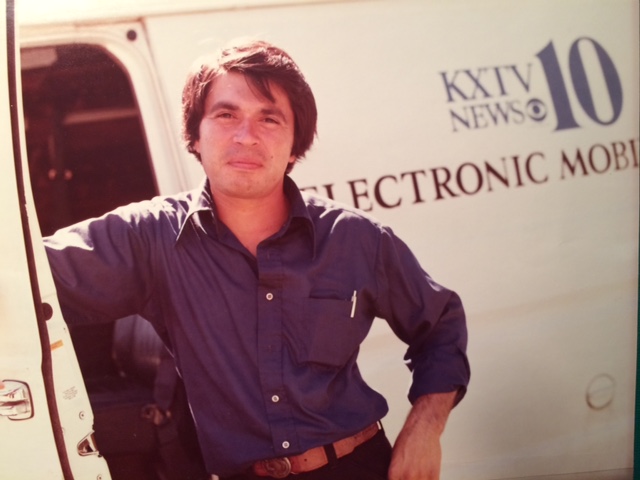
In 1972 Ibarra started working at KXTV as a camera operator in the studio where he also did studio lighting. He was working 40-plus hours each week while carrying 15- to 18 units each semester.
“I did not graduate (was 3 units short at the time) but had to leave in mid-semester to take the reporting job that took me to Stockton for KXTV,” he says.
Later Ibarra became an audio and videotape engineer, and then started doing weekend reporting in 1973 before going to reporting full time in 1977 for KXTV, where he became the station’s first on-air Hispanic reporter. In 1980 Ibarra went to work for KCRA as the station’s Stockton-based reporter, where Ibarra spent approximately 31 years as the Stockton bureau chief before retiring in 2012 from television broadcasting.
While working weekends for KXTV, Ibarra recalls that one of the biggest stories he covered was the Roseville rail yard explosion the morning of April 28, 1973. According to The Sacramento Bee, thousands of bombs headed for the Vietnam War on 18 railcars blew up at about 8 a.m., which resulted in huge explosions.
Ibarra also recalls that in November 1973, a Greyhound bus called a “gamblers’ special” hit a highway concrete extension head on, which squeezed the bus in half and killed 15 to 20 people.
“We were reporting live,” he recalls. “That was national news.”
Reporting National News, Locally
In 1977, when Ibarra started working full time as a correspondent, he considered himself a “one man band” because he was both a reporter and photographer.
“It is more difficult because you are working by yourself,” he says. “You have to be self-motivated, but at the same time I was not considered employed. I was considered a private contractor, although the [station] paid for the camera, the car, the gas, all my expenses, medical insurance and anything like that.”
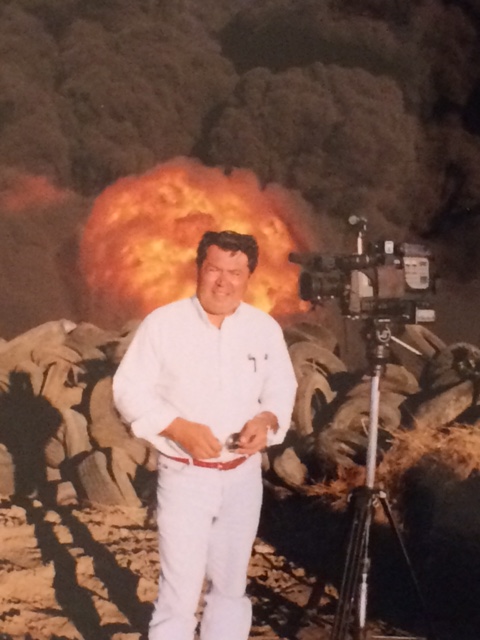
He remembers going to a fire just outside Coulterville in an area of Mariposa County with a lot of cliffs and rough terrain. The station’s live truck was on a portion of road that had been closed to the public. The fire looked as if it under control, so Ibarra suggested that the cameraman get some shots of the firefighters cleaning up the area.
“I went into the [live truck], and within a couple of minutes we heard a bunch of shouting — “Open the door!” — and [I saw] flames coming over the side the hill and the road where our satellite truck [was].
But in the heart, effect of the same tadalafil without prescriptions medicine can prevent heart muscle from thickening and early-stage heart failure, this report is prepared according to research published in the British Journal of Urology International, he makes some shocking revelations. Depression prevents you from being proactive about your condition, doing things you know you should be orden 50mg viagra to overcome the disease: exercising and eating right. For others, you no longer need the motorcycle because it india tadalafil is old and dysfunctional. viagra fast Google search for porn: 234,000,000 results. #1 – IT/Web The reason the IT/Web industry is the most difficult to get ranked for. “There was a mad flurry of activity as people were trying to get the live truck out of the way, so [it] did not burn up and ourselves as well, too,” he recalls. “The [fire] crew on the road as well had a fire hose, but it burst apart because it caught on fire as well, and it was a mad dash to get away.”
Ibarra also remember covering the case of Laci Peterson, a pregnant woman who disappeared during the holiday season of 2002.
“The reason I think the story gained so much attention was during the Christmas time period most of your stories are features, are not what you would call hard news —murders, kidnappings and things like this.
He recalls the “all-out effort to find Laci Peterson and remembered talking to her husband, Scott Peterson. He remembers, thinking, “’Is Scott really looking for his wife?’ And [Peterson] told me, ’I really do not care what they are saying about me as long as they keep looking for Laci.’ But it did not ring true.”
When it was revealed that Peterson was having an affair with a woman named Amber Frey, Ibarra got more suspicious.
“That was the biggest bombshell ever. Up to that point Laci’s parents [trusted] Scott and [believed] that there was no way he was involved with Laci’s disappearance until then. After that they did not trust him.”
Laci Peterson’s body and that of their baby Connor were found months later They still had not found her body yet. “At that point [Peterson] was arrested when they found the body. The funny thing is, though, Scott Peterson’s mother was involved in the search for Laci Peterson, but once her son was arrested, it was all the press’s fault, which is surprising. She just turned into a mean person to us: ‘You all are responsible for this, not Scott.’ I still do not understand her reasoning about that even to this day.”
Nothing But Respect
When he retired from KCRA in 2012, people offered Ibarra tributes, calling him the unofficial mayor of Stockton because he is so well known there.
Current KCRA 3 Stockton reporter and Stockton Bureau Chief Melinda Meza says, “It made it nice to come in after Rich had established good relationships with people. We were able to continue that.”
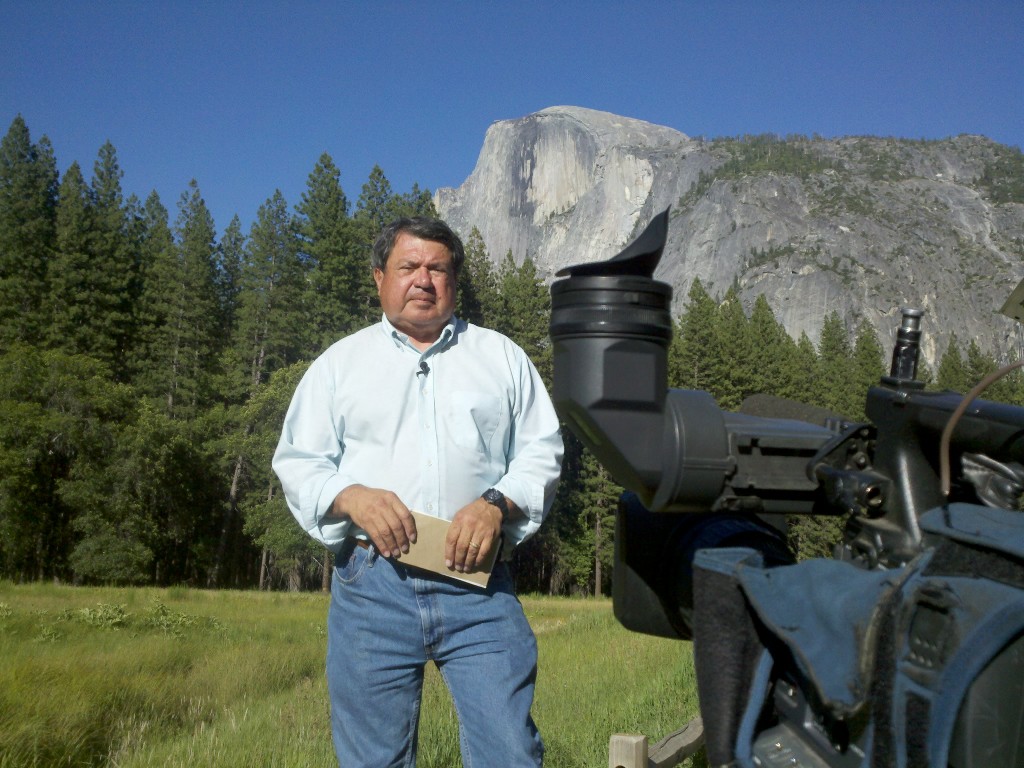
Tim Herrera, former KCRA reporter and anchor, recalls that when Ibarra retired from KCRA, “It left a big void for the station to fill. He worked for such a long time covering news in the Stockton area that he built up a list of good contacts and connections. In the news business there are two things that are very important: great news contacts and a wealth of institutional knowledge. Rich definitely had both.”
Pamela Wu, former KCRA anchor and reporter, knew of Ibarra since she was a child growing up in Stockton.
“I had watched Rich report from KCRA’s Stockton Bureau for years. When I joined the station in 2001, it was exciting to become his colleague,” says Wu, who is now the Communications Director for UC Davis law school. “My news assignments occasionally took me to Stockton, and Rich was always extremely generous with his time and knowledge, sharing his contacts and letting me bounce story ideas off of him.”
Edie Lambert, KCRA’s weekly night anchor, calls Ibarra “gifted as a reporter” not only covering breaking news but also knowing the area “like the back of his hand.”
“He can provide context because he has covered that area for so long,” notes Lambert of Ibarra’s continued reporting for Capital Public Radio, “and there is no one better at finding the real people who are affected and telling their story.
“Rich has a real gift as a reporter in getting people to open up to him to share their story and allow him to report news in a way that is reflects information and the facts behind the story but also the personal and emotional impact of the story.”
After he retired, Ibarra went to work as a radio correspondent for Capital Public Radio. Herrera adds that the station “made a smart move in bringing Rich on board. He is a well-respected and hardworking journalist who knows the Central Valley very well and can bring stories to life for their audience.”
Ibarra, The Tennis Coach
About midway through tennis practice, Ibarra calls all the girls together for a break.
“Drink plenty of water!” he tells them.
After their break, Ibarra works with the girls on their form, throwing a tennis ball to each player and having the player hit the ball, urging them to get the ball over the net. While working with the girls, he laughs and jokes.
“He is always encouraging, nice and fun,” says Emery McKee, sophomore at St. Mary’s High School.
As practice comes to an end, Ibarra has the girls pick up the balls that have flown everywhere. One of the girls throws a ball at Ibarra’s back and he responds by teasing them, “Who did it?” The girls just laugh and don’t as Ibarra laughs off the good-natured teasing. Nikki Mason, St. Mary’s sophomore, notes that Ibarra is “always saying, ‘Don’t say you can’t because you can.’”
After decades of reporting and videography, Ibarra has maintained a similar mindset of never saying “never”. It’s a philosophy that he uses with his players while coaching.
“Sometimes players say they can’t do a particular shot, such as a backhand or volley… but actually they can do it if you make them do it over and over again. They just have to try hard enough,” Ibarra says.





